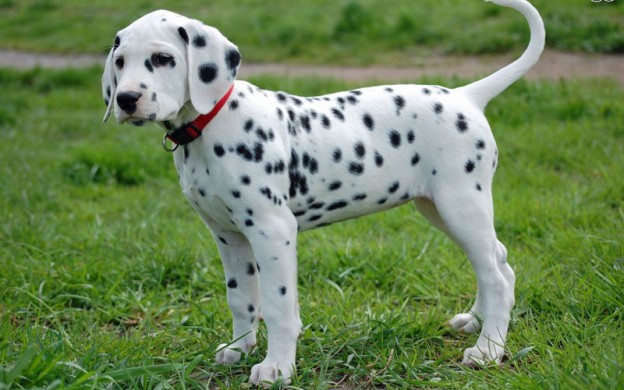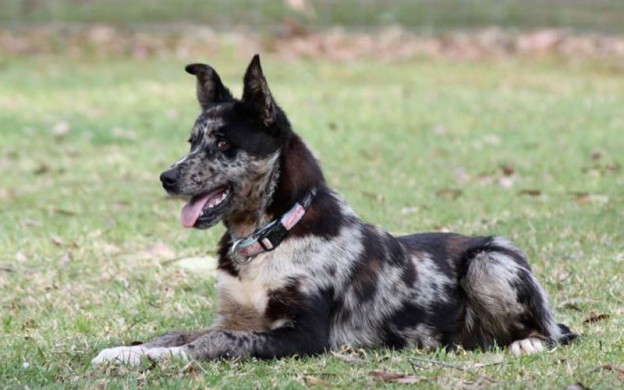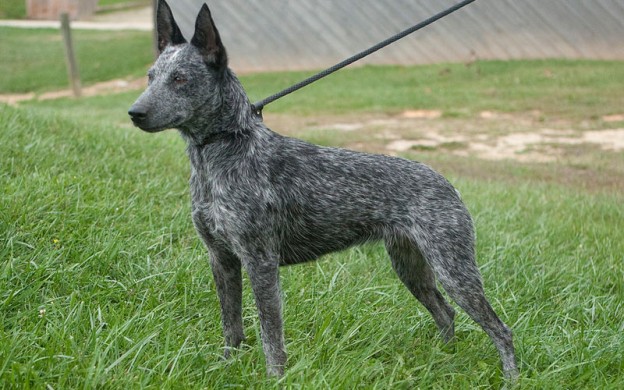
The Labrador is a loveable large breed dog that has a good nature and adores people.
Facts
Personality: This lovable pooch has to be one of the best feel-good dogs available. Warm, affectionate and loyal, the Lab adores people and needs to be taken in as one of the family. It will return any love given to it many times over.
Favourite activities: The lab is a late maturer so it needs lots of exercise and stimulation to keep it happy. This breed is excellent at agility, obedience training and flyball but mostly loves being with its family. It will also appreciate a romp in water in warmer months.
Backyard requirements: The Lab is not a dog to be relegated to the yard and if left to its own devices, will become problematic. Make sure your Lab is stimulated and is able to spend lots of time with its pack. If you don’t have a large yard where your Lab can run and explore, you will need to give the dog more exercise than normal.
Watchdog qualities: Although extremely friendly, the Labrador will bark if it sees a stranger approaching its property. The Lab can also be intimidating due to its large size.
Hereditary diseases: The Lab can suffer from hip and elbow dysplasia and progressive retinal atrophy. Always buy from a reliable and registered breeder to avoid getting a dog with inherited problems.
The Labrador Retriever and the Newfoundland were originally developed in the St Johns region of Newfoundland, Canada, on the eastern Canadian coast. To separate the two breeds, the Labrador, due to his love of water, was dubbed the Small Water Dog.
Fishermen soon caught wind of the breeds intelligence, desire to please and love of hard work and employed the breed to help with the fishing nets. The Labradors rescued drifting nets, retrieved the cork floats off fishing nets and swam ashore so fishermen could pull in the fish-filled nets.
In the 1800s, trade in salted cod brought the breed to the port of Poole in Dorset, England, where locals realised the breeds excellent nose and potential ability as gundogs. It was here that Britain’s love affair with the breed began and the Labrador Retriever soon became one of England’s best hunting and companion dogs.
Nowadays, the Labrador Retriever, well known for his gentle and affectionate nature, is a popular assistance dog for people with disabilities and is employed by the Guide Dog Association, Pets as Therapy, Australian Support Dogs and Assistance Dogs for Independence, among others. His love of people also makes him a popular family companion as he thrives on the affection of his guardians.
Anna Spanswick from Cambewarra Kennels, secretary of The Labrador Retriever Club of NSW, says the Labrador Retriever is suited to people looking for a human-oriented, loving and faithful dog to become part of the family. They are also very tractable, intelligent, full of enthusiasm and loyal, she continues.
The Labrador enjoys exercise and his love of water means he may go for swims in the family pool, so if your pool is not fenced, teach him from a young age where to find the safest and easiest place to get out the stairs. I have heard many stories about Labradors who don’t live with a pool, visiting a friend’s place and when noticing the pool running and jumping in much to everyone’s delight. They are an amusing and energetic breed that will please guardians no end with their antics.
Labradors, like all breeds of dogs, thrive on getting out of the house, having the stimulation of new and interesting scents, stretching their legs and enjoying different surroundings. As Labradors love water, a big treat is a swim in a dam or the sea, says Anna.
The Labrador is not a breed to be left in the backyard; they must be given mental and physical stimulation. Four walls can become very monotonous day after day and makes for a bored dog – in turn, they can become destructive and noisy, especially if they are on their own during the day, she warns.
A working dog, the Labrador is prone to putting on weight, so he needs an active family to satisfy his need for exercise and a regular exercise program to keep him in tip-top shape. The loyal and dependable nature of the breed, however, means he is happy watching TV with his family or running around the backyard playing ball as long as he is with you.
Labradors, like all breeds, love food and Anna couldn’t help but tell this funny story about a Labrador she once spotted. One day, a guide dog and his owner were making their way through a crowded department store. They walked passed a pusher with a child enjoying an icecream. Without missing a beat, the Labrador gently lifted the icecream from the toddlers hands, swallowed and kept walking. The distraught child became very vocal. The mother, who of course did not see the incident, to this day has no idea what upset her baby so, she says.
The Labrador is not only easy to please but a fairly low-maintenance breed in terms of bathing and grooming. Labradors need minimum grooming and a bath when necessary. Extra brushing when moulting gets rid of the dead hair, says Anna.
They are also biddable and anxious to please, making the Labrador very easy to train. Labradors respond very well to positive training in any facet and are quick learners. For agility, they may not be quite as speedy as their Border Collie cousins, says Anna.
Elizabeth Gent from Gunnislake Kennels in NSW also agrees that Labradors love pleasing their guardians. Labradors are extremely intelligent and easy to train. This is the main reason they are used by the Guide Dogs, Customs and the Police Drug Squad. They also compete in Agility, Flyball and Obedience, she says.
Elizabeth has been breeding Labradors for 39 years and says living with them is fun. The Labrador is the ideal dog for all ages. They are good with babies, careful around elderly people and great for a family to grow up with. A Labrador responds to love and attention and hates to be left in a yard and ignored, she says.
Anna says Labradors are not watchdogs and should never be aggressive towards humans, but they are a good alarm dog and will bark when there is a stranger on their territory. Elizabeth agrees that the Labrador is not aggressive but will defend his family if they are threatened.
Both breeders have been breeding Labradors for many years and acknowledge that the Labrador has some hereditary problems. Hip dysplasia and elbow dysplasia, which can lead to lameness in severe cases, are being addressed by responsible breeders. Breeders must have both the sire and dam of proposed litters X-rayed before breeding with them. Also, both paren’ts should have their eyes tested each year to guard against PRA (progressive retinal atrophy an eye disease), says Anna.
Elizabeth says the risk (to hip and elbow dysplasia and PRA) has been minimised by responsible breeders who have, over many years, used only cleared sound stock in their breeding programs.
To make sure a Labrador pup is cleared of the above problems, always choose one from a responsible and registered breeder. There is no hard and fast rule as to when pups are readily available; its all up to Mother Nature, says Anna. When buying a puppy, the breeder should supply information on what and how much the puppy is to be fed, when he is due to be wormed next, a vaccination certificate indicating when he is due for his follow-up booster vaccine and microchipping paper work. There are breeders who also supply general information on rearing and training, she says.
Dogs with jobs
Due to the Labradors gentle, obedient nature and high intelligence, he is employed in many different occupations from Guide Dog or Assistance Dog to Police Dog or Customs Dog. Check out these websites for more information.
Guide Dog Association of NSW (click on Other Organisations for the different states). www.guidedogs.com.au
For Pets as Therapy, (click on Services Directory and then Pets as Therapy in the same website).
Assistance Dogs for Independence (ADFI) www.assistancedogs.org.au
Australian Support Dogs www.asdog.org.au/assistance_dogs.htm
Canine Cops Customs Dogs in the USA www.factmonster.com/spot/caninecops.html
Breed Care
Daily: One or preferably two good walks a day to keep your Lab happy and stimulated. Make sure there is always fresh water available and monitor your pooch’s food intake as this breed is very prone to obesity.
Weekly: Brush once a week, especially during shedding season which occurs twice a year. Check eyes and ears, especially if your Lab has been in water. Make sure ears are kept dry to avoid infections.
Monthly: Bath when necessary. Check and clip nails if needed.
Other: Gastrointestinal worming every three months for adults, more frequently for puppies, heartworming and vaccinations.







